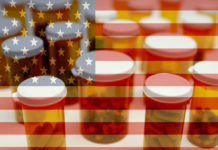test it in humans in clinical trials to actually see if we did get an effect. The fact is we did.”
Experts in the field have noted that people with a drug or alcohol dependence have trouble maintaining normal levels of vasopressin. This imbalance may make them more likely to fall off the wagon when facing stressful situations. By suppressing vasopressin, Litten hopes to reduce that risk. Their theory seems to have more clout now that ABT-436 is much more potent when taken by extremely stressed people.
Although research is off to a promising start, there have been pitfalls along the way.
Patients in the ABT-436 group without heightened stress levels experienced 31 days of heavy drinking during the course of Litten’s research. Conversely, people in the placebo group had 38 days of heavy drinking.
Unfortunately, this discovery did not meet the scientist’s criteria for a meaningful difference between groups. Therefore, researchers are uncertain that the drug works to reduce the number of days people drink heavily.
ABT-436 may be a rudimentary answer in the fight against alcohol addiction. Currently, the Food and Drug Administration (FDA) has approved four drugs to treat alcohol dependence.
“For our researchers, I think it really opens up an avenue to look at the stress system,” Litten said. “There are more targets they can test. So this might stimulate more interest in this area. What we’d really like to get out there is some of these evidence-based treatments out to the public so that when treatment doesn’t work they can try another one.”















